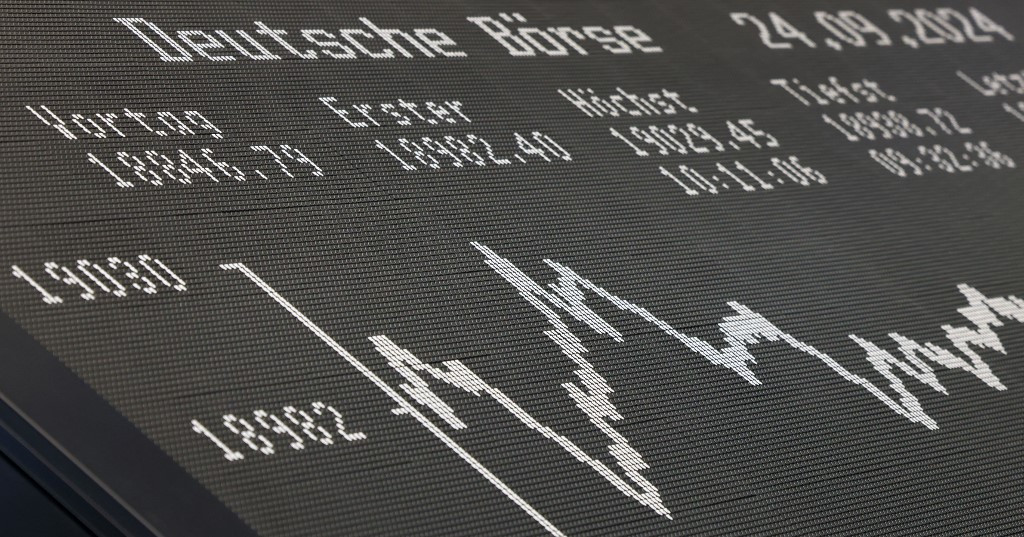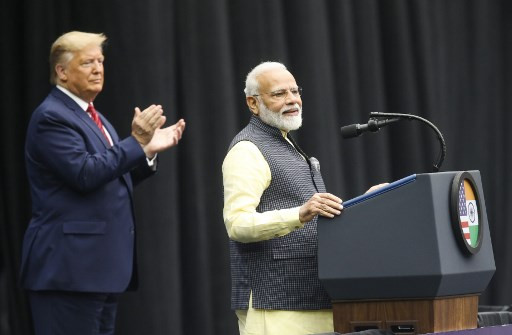Popular Reads
Top Results
Can't find what you're looking for?
View all search resultsPopular Reads
Top Results
Can't find what you're looking for?
View all search resultsAsian stocks weak amid Trump tariff worries
The loonie and peso remained weak following sharp drops to multi-year lows on Tuesday, while the yuan edged back towards the previous session's four-month trough.
Change text size
Gift Premium Articles
to Anyone
A
sian stocks were heavy on Wednesday as investors fretted over what countries could be targeted for tariffs under incoming US President Donald Trump, a day after he pledged new levies on Canada, Mexico and China.
The loonie and peso remained weak following sharp drops to multi-year lows on Tuesday, while the yuan edged back towards the previous session's four-month trough.
Australia's dollar, which is often used as a liquid proxy for the yuan given China is the country's biggest trading partner, also inched back towards Tuesday's four-month low.
However, the New Zealand dollar rebounded from its own multi-month lows after the country's central bank opted to cut interest rates by 50 basis points on Wednesday, disappointing some in the market who had bet on a bigger reduction.
The safe-haven yen extended its strong run, climbing to a two-week high on the US dollar, which was in turn weighed down by sagging Treasury yields.
Japan's Nikkei was a stand-out underperformer again on Wednesday, declining 0.9 percent. The autos sector was the worst-performing industry group on the Tokyo Stock Exchange, dropping more than 3 percent as both the threat of tariffs and the drag of a stronger yen weighed on the profit outlook.
Taiwanese stocks lost 0.2 percent, while South Korea's KOSPI rose less than 0.1 percent, struggling to bounce back from Tuesday's 0.6 percent slide.
Mainland Chinese blue chips sank 0.4 percent, although Hong Kong's Hang Seng managed a 0.1 percent rise.
MSCI's broadest index of Asia-Pacific shares drooped 0.1 percent.
Weakness in Asian equities contrasts with gains for all three of the major Wall Street bourses overnight, and S&P 500 futures pointed to a further 0.1 percent advance.
Trump posted on his Truth Social platform early in Asia's Tuesday that he would immediately put a 25 percent tariff on all products from Mexico and Canada upon taking office, and slap an additional 10 percent tariff on goods from China. He said those levies would remain until the countries clamped down on issues such as illicit drugs and migrants crossing US borders.
"The theme on the day has been to buy America, and for some to begrudgingly open a Truth Social account, with confirmation that headline risk and the communication channels for price discovery in markets have officially evolved," said Chris Weston, head of research at Pepperstone.
Compared with Trump's first time in office, "he is far more prepared, has a clear game plan, and has the legal passage to execute without constraint," Weston said. "Markets now expect bold action ongoing, with the noise in markets officially increasing even before inauguration."
The yuan weakened 0.1 percent to 7.2650 per dollar in offshore trading, heading back toward the low of 7.2730 seen on Tuesday.
The Mexican peso edged down to 20.7000 per dollar, approaching the overnight trough at 20.8350.
Canada's loonie also edged lower, though at C$1.40695 versus its US peer, there was more cushion from the knee-jerk low of C$1.4178 seen in the previous session.
The US dollar was more mixed against other major rivals, edging up to $1.0835 per euro and easing slightly to $1.25725 against sterling. It slipped 0.2 percent to 152.70 yen, after earlier reaching its weakest since Nov. 10 at 152.50 yen.










